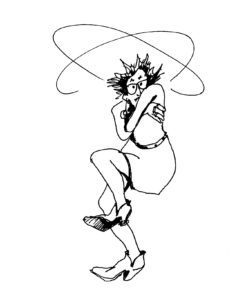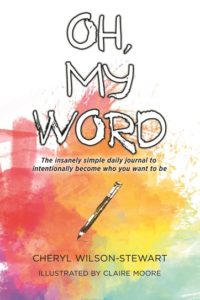
Is it anxiety, worry or stress?
Is it anxiety, worry or stress?
They all tend to fall into a shared basket of maladies in the 21st century. Do you suffer from a triumvirate of all three or does one create major havoc in your life?
If that’s the case …. which one?

The New York Times recently had a great article by Emma Pattee that explains the difference between anxiety, worry and stress. Since one or all affects most of us, I thought it would be great to offer a summary. You can read Pattee’s article here.
What’s WORRY?
Worry is characterized by being obsessive and repetitive. It’s when our minds ruminate and dwell on negative thoughts, uncertainties or things that could possibly go wrong. Melanie Greenberg, a clinical psychologist in Mill Valley, Calif and author of The Stress Proof Brain explains it this way, “worry is the cognitive component of anxiety. That means worry happens only in the mind and not in the body. When we worry it calms the brain down, it’s likely to cause us to problem solve or take action. Worry is a way for the brain to handle problems in order to keep us safe. Its only when we get stuck thinking about a problem that worry stops being functional and start becoming negative.”
If you’ve been in the clutches of worry you know how tightly it can hang on and consume our thoughts.
Dr. Luana Marques an associate professor of psychiatry at Harvard Medical School and President of the Anxiety and Depression Association of America suggests taking these steps to manage worry:
- Give yourself a worry budget and only allow yourself to worry for a specified amount of time (i.e. 20 minutes) when the time is up. Redirect your thoughts.
- When you’re worried push yourself to take action to move the thought out of your mind.
- Write your worries down. Studies show that 8-10 minutes of writing can calm repetitive thoughts.
What’s STRESS?
Stress is a physiological response to an external event like a deadline, doctor’s appointment or exam that exceeds the individual’s resources.
Stress used to be a natural response to a threat like a lion lurking nearby. Today we’re not faced with lions but traffic, work and relationship expectations and financial issues that fire up the limbic system and release adrenaline and cortisol which help activate the brain and body to deal with the threat. Symptoms of stress are a rapid heartbeat, clammy palms and shallow breathing. While it might feel good at first as adrenaline floods the body and gives you a boost to reach a deadline or get to an appointment, it becomes chronic stress if your body stays in this fight-or-flight mode continuously. Chronic stress can lead to many health concerns like digestive issues, increased risk of heart disease and a weakening of the immune system. Try these to manage stress.
- Exercise is a way for your body to recover from the increased production of adrenaline and cortisol.
- Know what you can control and let go of what you can’t.
What’s ANXIETY?
Anxiety is the culmination of both worry and stress. It is both cognitive and physiological. This means we experience anxiety in both mind and body. It takes worry and stress to the next level. Dr. Marques explains it this way, “anxiety in some ways is a response to a false alarm. An example would be you show up at work and someone gives you a look. You start to experience all the physiology of a stress response because you’re telling yourself that the boss is upset with you or that your job might be at risk. The blood is flowing, the adrenaline pumping and your body is in fight-or-flight but there is no predator nearby. The threat is in your mind.”
Dr Marques reminds us that there is a difference between feeling anxiety which can be a normal part of life and having an anxiety disorder. An anxiety disorder is a medical condition that may include stress and/or worry. Suggestions to manage simple anxiety.
- Limit Sugar, caffeine and alcohol
- Wiggle your toes – this kind of refocusing can calm you and break the anxiety loop.
- Distract yourself – go for a run, listen to music, cuddle a pet, or rub a piece of Velcro or velvet.
In SUMMARY
Worry happens in the mind.
Stress happens in the body.
Anxiety happens in both mind and body.
In small doses worry, stress and/or anxiety can be positive forces in our lives. It is when it escalates and stops us from acting in healthy, positive ways that it becomes an issue that needs addressing.
OH MY WORD can be a helpful management tool for worry, stress anxiety.

OH MY WORD is a science backed, 5 minute daily journal that will help you transform negative thoughts, ease anxiety and worry and cultivate joy in your life.
- Replaces negative thoughts with positive ones you choose thus redirecting the worry.
- Positive thoughts flood the body with dopamine and serotonin diluting and effects of adrenaline and cortisol.
- Creates a creative, mindful distraction from anxiety.
OH MY WORD Journal can be purchased here:
22 Replies to “Is it anxiety, worry or stress?”
Thanks for defining and comparing all three different modes of distress. Sadly, you cannot fully rid yourself of worry, stress and anxiety, but you can definitely limit them. The toughest part for me is limiting caffeine because I also need it to be productive at work. Focusing on your breath and voicing your concerns to others is a good way to heal and relent.
Thank you for giving each of them distinct definitions. I also at times gets confuse about these three he he. That said I always believe that they will always be there. Come to think of it in a raw scale everything we do is STRESS and there is good anxiety so these are literally part of our lives. In good doses they are healthy.
This helps us identify what we are experiencing. I hope that we all recover from it.
Great post, I hadn’t considered that worry could be good as long as I doesn’t’t let it become in anxiety.
It is a very informative and at the same time a helpful article. I have noted where you said it’s best to have a time set aside to worry. It is crucial for someone to focus on other things for the bigger pie of time.
Most humans thrive on routine. So setting aside time to worry is something we can add to our daily routine. Then give ourselves time to learn to limit it to the worry time.
You are right. Humans are creatures of habit.
Yes! and to break or change those habits takes a concerted effort!
I am so thankful of you to throw light on varied kinds of sadness. You can eradicate worry and sadness by thinking positive.
I can now better understand the difference between all this. The mind has a great influence on everything that has happened.
Anxiety, worry and stress have such subtle differences. Before reading this article I always assumed they were more or less the same thing.
Of the three, I fear worry the most. It fosters negativity which can basically affect every aspect of someone’s life.
Unless the worry is the impetus for positive productive action.
Worry can be a good or bad thing depending on what it pushes us to do. For instance, if you worry about approaching exams, you can study for them in which case the worry will have helped.
Exactly! Productive worry that positively motivates and then releases.
I like the idea of having a worry budget. It’s a very fun and effective way of dealing with worry. I can see myself subscribing to that.
I have found exercising to help a lot in dealing with stress. A quick 10 minute brisk walk can do wonders!!
“Know what you can control and let go of what you can’t.” That has always been the code that I live by and it has helped me avoid a lot of unnecessary stress.
Studies show that 8-10 minutes of writing can calm repetitive thoughts. I think it’s time to start writing!!
The thing I dread most is chronic stress. I have seen what it does to people and I’d never wish it upon my worst enemy.
I quite like your summary: Worry happens in the mind.
Stress happens in the body.
Anxiety happens in both mind and body.
Thanks for the well researched article. I have learnt something from this.
The OH MY WORD journal is a good tool for helping us cope with anxiety, stress and worry. I thank you for making this wonderful product available 🙂